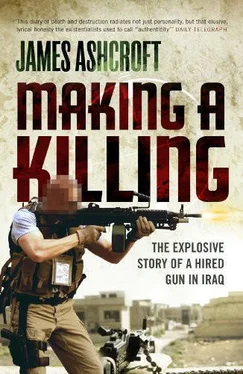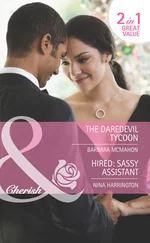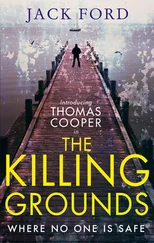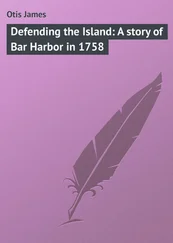More importantly, now that the Green Berets were back in Baghdad we made a plan to bug out to their villa if things got bad and we were cut off from the CPA. They had an emergency operating room for casualties, the ability to call in a helicopter medevac, and also enough weaponry to retake the city single-handed.
Ra’eed was an engineer trained in Munich and the manager at the filtration depot a couple of kilometres southeast of the city, a fifteen-minute drive from the villa. He was a softly spoken, clean-shaven man who wore half-moon spectacles and was, for an Iraqi, unusually calm.
He was hurried into my office by Sammy and Colonel Faisal and that day the quiet man was screaming at the top of his voice.
‘We have very problem,’ Sammy translated.
Colonel Faisal started muttering about ‘fucking people’. I put down my coffee and wondered what else was going to go wrong. I had spent the morning with Sammy instructing workmen on some repairs that needed to be done on the villa and was not convinced that they would be able to do the work without constant supervision.
Sammy explained that a bomb ‘with a thousand wires’ had been planted on a valve pump at the heart of the filtration depot. Pipes could be replaced quickly. Pumps had to be reordered from the makers in Germany and required import permits. Even if the CPA could rush through the permits the pumping unit still had to be ordered, built and shipped; a possible delay of months before the plant was operational again.
This was an inside job. The filtration depot was huge. The bomber had known exactly where to place the explosives. If the bomb went up, it would close the plant and oil the wheels of the insurgency. The insurgents didn’t have to defeat the CF militarily in the field to win the battle, they just had to prove that the Americans were incapable of running the country.
Seamus had heard Ra’eed shouting, you couldn’t miss it, and pushed his way into my office.
‘IED,’ I said. ‘Looks bad.’
He pulled out his phone. ‘Wheels up in five, Ash,’ Seamus said, and I went to muster the team while he called Mad Dog.
The standard drill was to call our TF Fountain masters with a GPS of the grid. They passed this on to the bomb squad, and they put it on their worksheet for the day.
The guard on the villa’s main gate made a show of hurrying and we screeched out of the compound in a three-car packet, one Iraqi, one Brit and one South African. Sammy drove the lead vehicle in Mig pilot style, so we did the fifteen-minute drive to the plant in ten minutes.
The depot was surrounded by apartment buildings and covered a wide area with numerous pumping stations, a big car park and a high fence. We ordered the guards to turn off mobile phones and radios in case one of their transmissions detonated the device.
In spite of the urgency, Seamus and I followed convention and stood around for five minutes greeting the guard captain and his shift supervisors. How’s your wife? Has she had the baby yet? Colonel Faisal and the shift supervisor lit cigarettes and chatted, which gave the supervisor prestige in front of his men and reminded everyone that Colonel Faisal was the guard chief. Finally trays of chai turned up and we sat down to talk business.
With the courtesies over, we sent guards out into the neighbourhood with instructions to tell the locals that there was a bomb in the plant and everyone was to stay indoors, but not to worry, the Amerrikee would be there to deal with it in an hour or so. We assumed the insurgents would be listening in on the local chatter. Knowing the CF was on the way, they would hopefully delay detonation and aim to score a double hit: destroying the machinery and killing a few Americans at the same time. The delay would give us the chance to gather intelligence before the bomb squad arrived.
The worker who had discovered the bomb was waiting to be interviewed and the shift supervisor had seen the bomb for himself. Both confirmed that they had not seen a command wire leading to the pump. The device would almost certainly be fired by a timer or by remote control, but you check every contingency.
Dai and the Yaapies remained outside sitting in the wagons with the air-con running. They were keeping an eye on the main gate for the Americans, not that we expected them any time soon. The bomb squad was tasked all over the city and may have had thirty incidents to deal with before they got to us.
In the British Army the standard practice is to clear the area of all personnel, but also to gather as much information about the device before the bomb disposal officer arrives. This would include a description and a detailed drawing. We had adopted this in our drills and added a digital photo or a video shot to the package. Ra’eed’s hands were shaking when I got him to draw the exact location of the bomb. Effectively, if this device went off, the whole plant would be out of action.
Half the guards were deployed around the perimeter, radios and phones turned to off. The rest clustered outside the office, curious to see what we would do.
Mad Dog called Seamus on the IRAQNA to say the EOD Team had been tasked but were unlikely to arrive before 1900 hours. By this time it would be dark. If possible we should try and get a photo of the device in daylight to give to EOD when they finally turned up.
It was unfortunate that Les Trevellick was on leave. He was an engineer and had extensive experience as an instructor in demolitions. I was the next nearest thing we had to an expert, which wasn’t that near at all. I volunteered to go forward and take a video shot of the bomb.
‘You’ll need to go dressed up as one of the guards,’ Seamus said. If the bombers saw a Westerner they would be even more likely to set off the bomb.
‘Good thinking.’
Sammy went out to find a guard about the same size as me. Most Iraqis are smaller and he returned with an older man in his fifties. When Sammy told him we wanted him to undress and exchange clothes with me he shook his head and babbled away to Sammy. I recognised two words out of the torrent: mukhosh , which meant ‘bad’ or ‘wicked’ and haram , which meant ‘forbidden’, in the religious sense. It was bullshit. I had seen our radio operators wandering around all night in their baggy underwear and string vests.
‘Offer him ten bucks,’ I said. ‘ Ashr dollar ,’ I waved a note at him.
‘OK, Mister.’ The old fox smiled a mouthful of brown broken teeth at me and took the ten dollars. ‘ Shukran .’
‘ Afwan ,’ I replied. You’re welcome.
I stepped out of my boots, socks, belt kit, vest, shirt and trousers and stood there in my boxers. The guard hid behind the table and removed his clothes slowly like a stripper in a club. I pulled on his trousers, his dish-dash, which probably got washed once a week but smelled as if unlaundered for a year, and buttoned up the tattered cardigan with its guard armband. I was already sweating before Sammy covered my hair with the guard’s grimy shemagh . He tied it properly, then tucked a fold in across my face so that only my eyes could be seen. Thankfully the headcloth stank of stale cigarettes and covered up the aroma of the rest of the clothing. The supervisor sat the guard down in his string vest and shorts and gave him a cigarette and a cup of chai . He looked pleased with himself, the hero of the moment.
‘You look about as Iraqi as Claudia Schiffer,’ said Seamus.
‘You haven’t read my reviews when I did Shakespeare at Brasenose.’
‘Well, you’d better make this a star performance, mate. Be careful and make it quick.’
I slipped into the guard’s plastic sandals and grabbed his systematically neglected AK-47. The mag was full of Iraqi ammo. I stuck the magazine back in place, slung the rifle over my back, and stuck the video camera under the dish-dash.
Читать дальше












